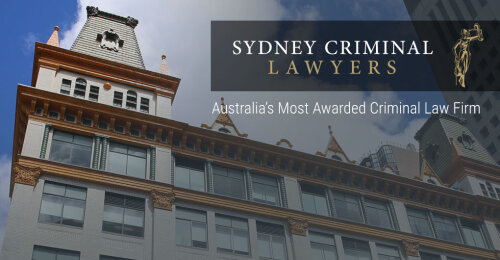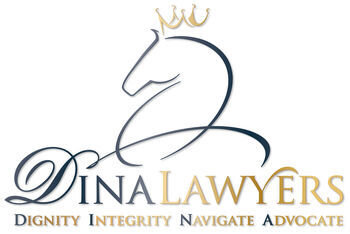Best Criminal Litigation Lawyers in Sydney
Share your needs with us, get contacted by law firms.
Free. Takes 2 min.
List of the best lawyers in Sydney, Australia
About Criminal Litigation Law in Sydney, Australia
Criminal litigation in Sydney, Australia, involves legal proceedings related to crimes committed against state or federal law. It encompasses various processes including investigation, charge, trial, and possibly an appeal. In Sydney, criminal litigation covers offences such as theft, assault, fraud, and drug-related crimes, among others. The legal system in Australia operates under the principle of a fair trial and presumption of innocence, overseen by a court system well-equipped to handle such matters.
Why You May Need a Lawyer
Engaging a lawyer in criminal litigation is crucial given the complexities of the legal system and the potential ramifications of criminal charges. Situations where one might need a lawyer include facing allegations of criminal conduct, being under police investigation, or if they have been formally charged with a criminal offence. A lawyer can provide legal advice, represent you in court, negotiate with prosecutors, and help secure a fair trial or an appropriate plea deal.
Local Laws Overview
Sydney, as part of New South Wales (NSW), follows state-specific legislation as well as federal laws applicable throughout Australia. Key legal instruments include the Crimes Act 1900 (NSW) which outlines many offences such as assault and theft, and the Criminal Procedure Act 1986 (NSW) that sets the procedures for criminal trials. Court jurisdiction varies depending on the seriousness of the offence, with Local Courts handling less severe cases and District or Supreme Courts addressing more serious matters. Bail laws, sentencing guidelines, and specific provisions for young offenders are also particularly relevant in the local context.
Frequently Asked Questions
What constitutes a criminal offence in Sydney?
A criminal offence in Sydney is any act or omission that the law classifies as worthy of punishment. This can range from minor offences like traffic violations to serious crimes like murder or sexual assault.
How does a criminal trial unfold in Sydney?
A criminal trial in Sydney typically involves several stages including arraignment, where charges are read, plea, evidence presentation, and deliberation by a judge or jury. The trial concludes with a verdict and, if guilty, sentencing.
Can I represent myself in a criminal case?
While it's legally possible to represent yourself, it is not recommended due to the complexity of criminal law. Legal representation ensures that your rights are protected and you receive expert guidance throughout the process.
What are the potential outcomes of a criminal trial?
Outcomes can range from a complete acquittal to conviction with penalties such as fines, community service, or imprisonment, depending on the severity of the offence.
How is bail determined in Sydney?
Bail is determined based on a risk assessment that considers factors like the seriousness of the offence, the person’s criminal history, and potential risks to public safety. A magistrate or judge makes the final decision.
What is the role of a defence lawyer?
A defence lawyer’s role is to advocate on your behalf throughout the legal process, provide legal advice, prepare and develop your case, and strive to achieve the best possible outcome.
Are there alternatives to going to trial?
Yes, alternatives include plea negotiations, where a defendant might plead guilty to lesser charges to avoid trial, or diversion programs, particularly for first-time or low-risk offenders.
What are my rights if arrested?
If arrested, you have the right to remain silent, except for providing your name and address, the right to one phone call, and the right to ask for a lawyer.
How can I find a good criminal lawyer in Sydney?
You can find reputable lawyers by seeking recommendations from trusted sources, consulting the Law Society of NSW, or reviewing professional directories and ratings.
What is the difference between summary and indictable offences?
Summary offences are less serious and dealt with in Local Courts, while indictable offences are more serious with proceedings typically in District or Supreme Courts.
Additional Resources
Several resources can assist those seeking legal advice including the Legal Aid NSW, which provides assistance to eligible individuals, the Law Society of NSW, which offers referral services, and community legal centres which provide free or low-cost legal services.
Next Steps
If you require legal assistance in criminal litigation, consider contacting a lawyer immediately to discuss your case. Preparing relevant documentation and understanding your legal position can significantly aid your lawyer in providing you with the best representation. For those unable to afford private legal representation, reaching out to Legal Aid NSW or a community legal centre should be your next step.
Lawzana helps you find the best lawyers and law firms in Sydney through a curated and pre-screened list of qualified legal professionals. Our platform offers rankings and detailed profiles of attorneys and law firms, allowing you to compare based on practice areas, including Criminal Litigation, experience, and client feedback.
Each profile includes a description of the firm's areas of practice, client reviews, team members and partners, year of establishment, spoken languages, office locations, contact information, social media presence, and any published articles or resources. Most firms on our platform speak English and are experienced in both local and international legal matters.
Get a quote from top-rated law firms in Sydney, Australia — quickly, securely, and without unnecessary hassle.
Disclaimer:
The information provided on this page is for general informational purposes only and does not constitute legal advice. While we strive to ensure the accuracy and relevance of the content, legal information may change over time, and interpretations of the law can vary. You should always consult with a qualified legal professional for advice specific to your situation.
We disclaim all liability for actions taken or not taken based on the content of this page. If you believe any information is incorrect or outdated, please contact us, and we will review and update it where appropriate.

















